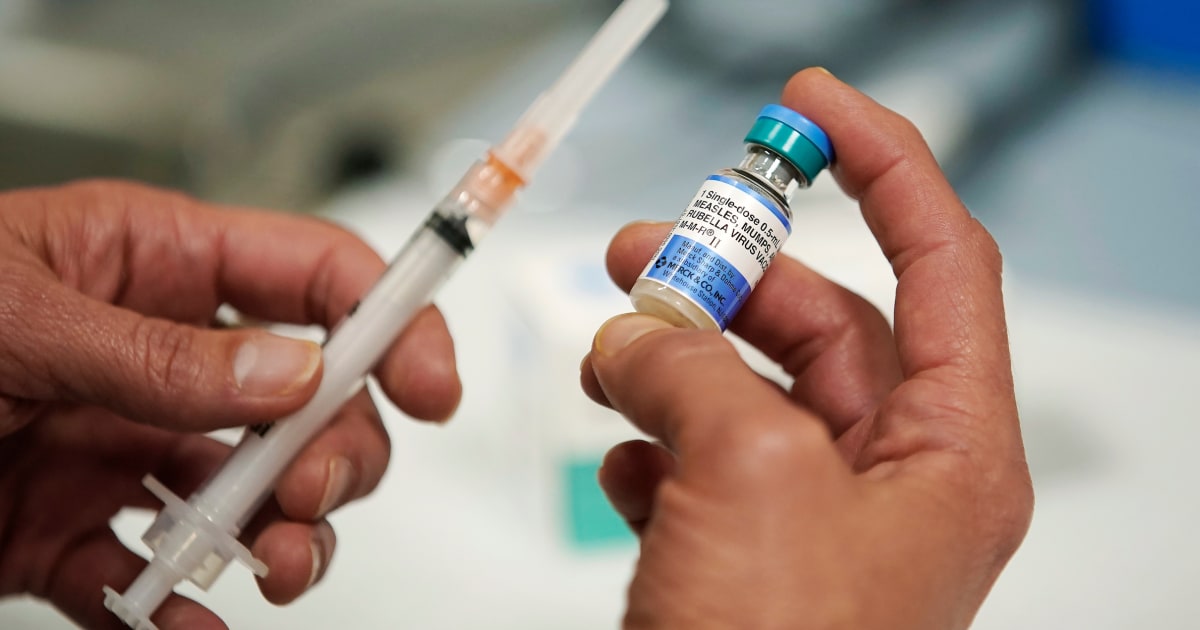Global society
all articles
In Europe, the number of measles cases is on the increase: the World Health Organization (WHO) registered more than twice as many measles cases in 48 European countries in the first half of 2019 than in the same period of the previous year. According to figures released on Thursday, the number of measles cases rose from 44,175 to 89,994. Four European countries - Great Britain, Greece, the Czech Republic and Albania - lost their status as measles-free.
A country is considered to be free of measles if it has not been transmitted for a period of 12 months. According to statistics for 2018, Greece, the UK, the Czech Republic and Albania can no longer be considered as measles-free. In Greece, 2,193 cases were recorded, 1,466 in Albania, 953 in the UK and 217 in the Czech Republic.
37 deaths 2019
"The increasing transmission of measles is worrying," said Günter Pfaff, chair of the European Commission for the Elimination of Measles and Rubella. Failure to ensure a high immunization rate would result in "unnecessary suffering" and, in some cases, "tragic death". In Europe, a total of 74 fatal measles cases were registered in 2018, compared to 37 in the first half of 2019.
MORE ON THE SUBJECT
Measles are a viral disease that spreads faster than the flu or Ebola. If an infected person sneezes or coughs, the viruses remain active for another two hours. An infection can still take place if there is no infected person in the room. In addition, infected people can transmit measles virus as early as four days before the typical rash. The infection weakens the immune system immensely, there can be life-threatening complications such as pneumonia or meningitis, especially in anyway immune-compromised people such as infants or seniors.
As a late consequence of a measles infection, a so-called subacute sclerosing panencephalitis (SSPE) can develop after years, an inflammation of the nerve cells of the brain and the spinal cord. It leads to the loss of brain functions and finally death.
Measles in Germany endemic
In twelve European countries, including Germany and France, measles are endemic according to the WHO, so these countries are not free from measles. Austria and Switzerland, on the other hand, now enjoy this status on the basis of the 2018 data.
In Germany, from 1 March 2020, a mandatory vaccination for measles should apply. Immunization rates of at least 95 percent are required for a protective effect in society. According to a survey by the Barmer Krankenkasse, however, the measles quotas for measles are consistently below 90 percent. In addition, there are many young adults who are not vaccinated enough and do not know that.
MORE ON THE SUBJECT
In this country too, therefore, a marked increase in measles cases is emerging. According to the Robert Koch Institute in 2018, about 540 cases were reported after nearly 930 measles cases in 2017. Several states have reported more measles cases this year than in the same period last year.
Globally, between January and the end of July 2019, the highest number of reported measles cases since 2006 occurred during the same period. According to preliminary figures, nearly 365,000 measles cases were registered in 182 countries by the end of July, nearly three times as many as in the same period last year and more than in 2018 as a whole, the World Health Organization (WHO) reported.
By far the largest number of measles cases have been registered in the Democratic Republic of the Congo, Madagascar and Ukraine. However, according to the WHO, only about ten percent of the cases are included in the statistics.
This article is part of the project Global Society, for which our reporters report from four continents. The project is long-term and supported by the Bill & Melinda Gates Foundation.
What is the project Global Society?
Under the title Global Society, reporters from Asia, Africa, Latin America and Europe will be reporting on injustices in a globalized world, socio-political challenges and sustainable development. The reportages, analyzes, photo galleries, videos and podcasts appear in the Politics Department of SPIEGEL. The project is long-term and will be supported over three years by the Bill & Melinda Gates Foundation (BMGF).
Are the journalistic contents independent of the foundation?
Yes. The editorial content is created without the influence of the Gates Foundation.
Do other media have similar projects?
Yes. Major European media such as "The Guardian" and "El País" have created similar sections on their news pages with "Global Development" or "Planeta Futuro" with the support of the Gates Foundation.
Was there already similar projects at SPIEGEL ONLINE?
SPIEGEL ONLINE has already implemented two projects in recent years with the European Journalism Center (EJC) and the support of the Bill & Melinda Gates Foundation: The "Expedition The Day After tomorrow" on Global Sustainability Goals and the journalistic refugee project "The New Arrivals" Several award-winning multimedia reports on the topics of migration and escape have emerged.
Where can I find all the publications on the Global Society?
The pieces can be found at SPIEGEL ONLINE on the topic page Global Society.












/cloudfront-eu-central-1.images.arcpublishing.com/prisa/S7ERVSCT4FUVX6R7TUVBDNTH5Y.jpg)


